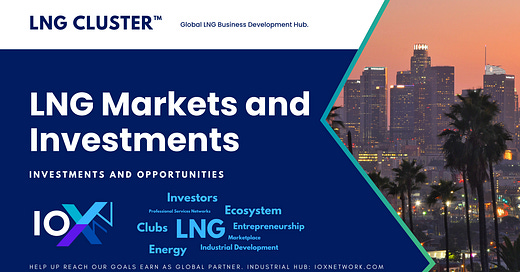LNG Pulse – LNG Under Pressure: Trade Tensions, Political Realignments, and Market Repositioning
LNG markets adapt as trade wars escalate, Asia recalibrates, and new players emerge.
Analysis
China’s Retreat and the Shifting Power Balance in LNG
The LNG market faces a pivotal moment as China extends its suspension of U.S. LNG imports, the longest halt since the last major trade war. This time, however, the dynamics are more intricate: while direct imports are frozen, China is re-exporting record volumes of U.S.-origin LNG—over 280,000 tons in April alone. Europe and South Asia stand to benefit, securing flexible cargoes at competitive prices.
At the same time, Japan’s JERA, the nation’s largest gas buyer, is considering investing in the Alaska LNG project. As U.S. policymakers pressure Asian allies to support American energy infrastructure, Japan’s strategic moves could reshape LNG alliances in the Pacific.
However, uncertainty clouds the market. Japan’s upcoming May elections in Australia, its primary LNG supplier, have buyers on edge. Any policy shift could alter project economics, regulatory environments, or supply stability.
India’s response has been swift: cutting LNG imports due to rising prices and pivoting to alternative fuels like oil products. With LNG’s cost competitiveness under pressure, India’s reduced demand could leave a noticeable dent in short-term Asian spot market appetite.
Meanwhile, the U.S. LNG industry is sounding alarms over new maritime regulations mandating U.S.-flagged vessels, warning that the industry lacks sufficient capacity to comply without severe export disruptions.
In parallel, Morocco is entering the LNG game. The North African country has issued an expression of interest to develop an LNG terminal near Nador, signaling the region's pivot from coal to cleaner gas imports.
Global Investments & Developments
JERA Eyes Alaska LNG Investment
Japan’s JERA Co. may join the Alaska LNG project, strengthening U.S.-Japan energy ties while diversifying Japan’s LNG supply sources away from Australia.
Morocco Prepares for LNG Import Infrastructure
Morocco’s initial moves to establish a Mediterranean LNG terminal represent a strategic shift to diversify energy sources and reduce coal reliance.
Commonwealth LNG Seeks Expedited FERC Approval
Commonwealth LNG is requesting U.S. regulators to shorten its permitting timeline by one month, reflecting urgency among developers to bring new capacity online amid global demand shifts.
Argentina’s YPF Opts for FLNG Over Land-Based Terminal
Argentina’s YPF abandons plans for a land-based liquefaction facility, focusing instead on floating LNG solutions to lower project costs and fast-track exports.
Global LNG Trade & Markets
China’s Imports Extend Slump into April
Chinese LNG imports are projected to fall by more than 20% year-over-year, maintaining pressure on global market balance and freeing up volumes for Europe and South Asia.
India Cuts LNG Buying as Oil Products Gain Favor
High LNG spot prices prompt Indian importers to switch to cheaper fuels, indicating how price-sensitive emerging markets remain.
U.S. LNG Sector Faces Risk from Shipping Regulation Changes
New U.S. maritime rules requiring LNG shipments on U.S.-flagged vessels could constrain export capacity unless exemptions or logistical solutions are implemented.
Spain Urges EU to Maintain Methane Emission Goals
Spain advocates maintaining strong methane reduction targets in energy imports, shaping future standards for LNG trade within Europe.
Investment Opportunities
Flexible LNG Trading Windows Expand in Europe and South Asia
Chinese re-exports and Indian demand shifts are creating short-term trading opportunities, particularly for agile traders capable of dynamic cargo redirection.
Morocco’s LNG Infrastructure Offers Frontier Market Potential
As Morocco opens the door to LNG, opportunities emerge for developers, EPCs, financiers, and infrastructure operators targeting emerging import hubs.
Strategic Partnerships in Alaska and Beyond
Asian participation in U.S. projects like Alaska LNG could unlock new long-term contracts and financing models aligned with U.S. energy diplomacy goals.
Floating LNG Solutions Gain Traction
Argentina’s decision to prioritize FLNG reflects a growing trend toward lower-cost, flexible LNG export options—opening service and technology niches.





